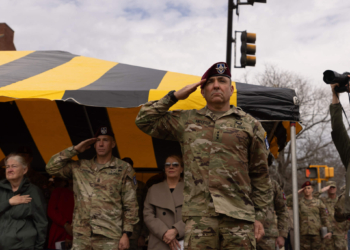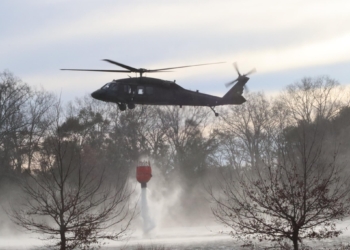On New Year’s Day, former President Trump’s veto of the 2021 National Defense Authorization Act (NDAA) was overturned by the U.S. Senate following an earlier override by the U.S. House of Representatives. This bipartisan action officially set the 2021 military budget ($741.5 billion) and the year’s legislative priorities.
Here are the top 10 takeaways for military families from this year’s bill, as well as a look at the things that didn’t make the list.
Top 10 takeaways for military families on the 2021 NDAA
Special Education
Education has been at the forefront of the COVID-19 conversation, with those in special education facing additional struggles. In order to mitigate the issues faced by those enrolled in the Exceptional Family Member Program (EFMP), the NDAA proposes that all service branches standardize EFMP. This is significant for families who find themselves at a joint base without access to similar services. In the past, standardization did not extend to the Coast Guard, as they are funded by the Department of Homeland Security. Other wins include special education advocates to help families establish and maintain Individualized Education Programs (IEP) before, during, and after PCS moves.
Child care
The availability of child care has long been a readiness issue for the Department of Defense and has only gotten more difficult as a result of the global pandemic. The NDAA includes a number of provisions that seek to improve access to child care, including expedited housing for Family Child Care (FCC) providers offering in-home care and 24-hour care for any service member or DOD civilian that works a rotating shift on an installation where it is deemed feasible.
Military spouse employment
Military spouse employment has been an ongoing issue due to frequent PCS moves. The 2021 NDAA calls for “improvements to partner criteria of the Military Spouse Employment Partnership Program (MSEP).” Additionally, the provisions included in this legislation would allow smaller businesses to participate, removing the more stringent requirements currently in place that are geared heavily to larger, franchise-style companies.
TSP contributions
The thrift savings plan (TSP) is a wonderful resource for military service members. It allows them to contribute to retirement in a 401(k)-style employer-matched contribution model. This item builds upon efforts to improve military spouse employment in seeking to correct the military spouse-civilian income gap. While this bill only seeks to study the possibility of allowing spouses to contribute to TSP, it is a step in the right direction. One thing to note is that under this proposal contributions would need to be made into the service member’s account vs. creating a separate spousal account.
Privatized Military Housing
Military privatized housing has been in Congress’ sights since families testified in 2019. Provisions include strengthening the DOD Tenant Bill of Rights by addressing two items that were still pending, which are:
- Dispute resolution: During disputes tenants will be able to withhold 10 percent when landlords do not fulfill agreements on time with tenants having the option to request to withhold higher amounts.
- Maintenance records: Tenants will be given seven years of maintenance records
The legislation also allows for the expedited hiring of positions that oversee military housing and the allocation of millions in funding to repair and build new military housing.
TRICARE updates
EFMP families will further benefit from enhancements to the Extended Care Health Option (ECHO) program. Current coverage includes 16 hours of respite care for primary caregivers. The 2021 NDAA increases that benefit to 32 hours per month. Reports will also be required to examine ECHO wait times and beneficiary satisfaction. Other TRICARE provisions include a registry of patients diagnosed with COVID-19. This COVID registry will have an opt-out feature.
Telehealth study
COVID-19 has created a new normal. One silver lining that the DOD will get to capitalize on is the availability of telehealth. This new service has come into the forefront during the pandemic.
Reduction in force size?
The size of the military has been shrinking since the 1990s, despite the post-9/11 sustained conflict. However, the NDAA includes various provisions to limit the reduction of force size in two key locations. The first is Germany, and the second is Afghanistan. Despite President Trump’s stated desire to remove troops from these regions, Congress has agreed to limit these actions until further study has been conducted.
Military pay raise
The military annual base pay raise will hold steady despite the COVID-pandemic, increasing by 3% in FY2021.
Read: Here’s how troops will repay suspended payroll taxes in 2021
What was NOT included?
There are some issues that are not being addressed in the 2021 NDAA which include, but are not limited to:
- Basic needs allowance for low-income military members
- Absentee ballot tracking program
- Plans to increase female and minority representation in the Armed Forces
- Establishment of Exceptional Family Member Program housing liaison
- Housing
- DOD report on criteria and metrics used to evaluate the performance of landlords of privatized military housing that receive incentive fees
- Report on DOD efforts regarding oversight and role in the management of privatized military housing
To learn more about what was and wasn’t included in the exhaustive 4,517-page document read the Conference Report.
Read comments







































